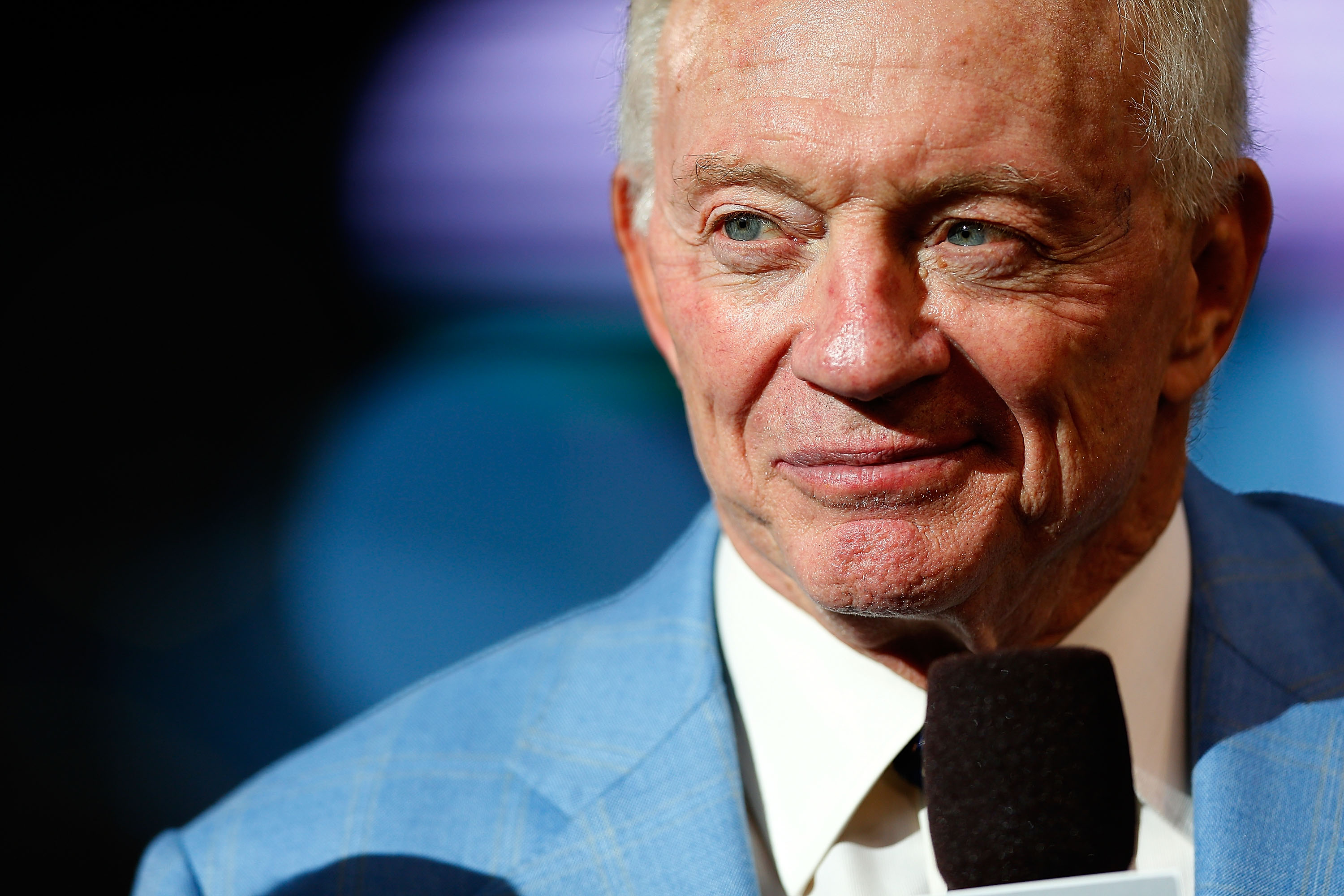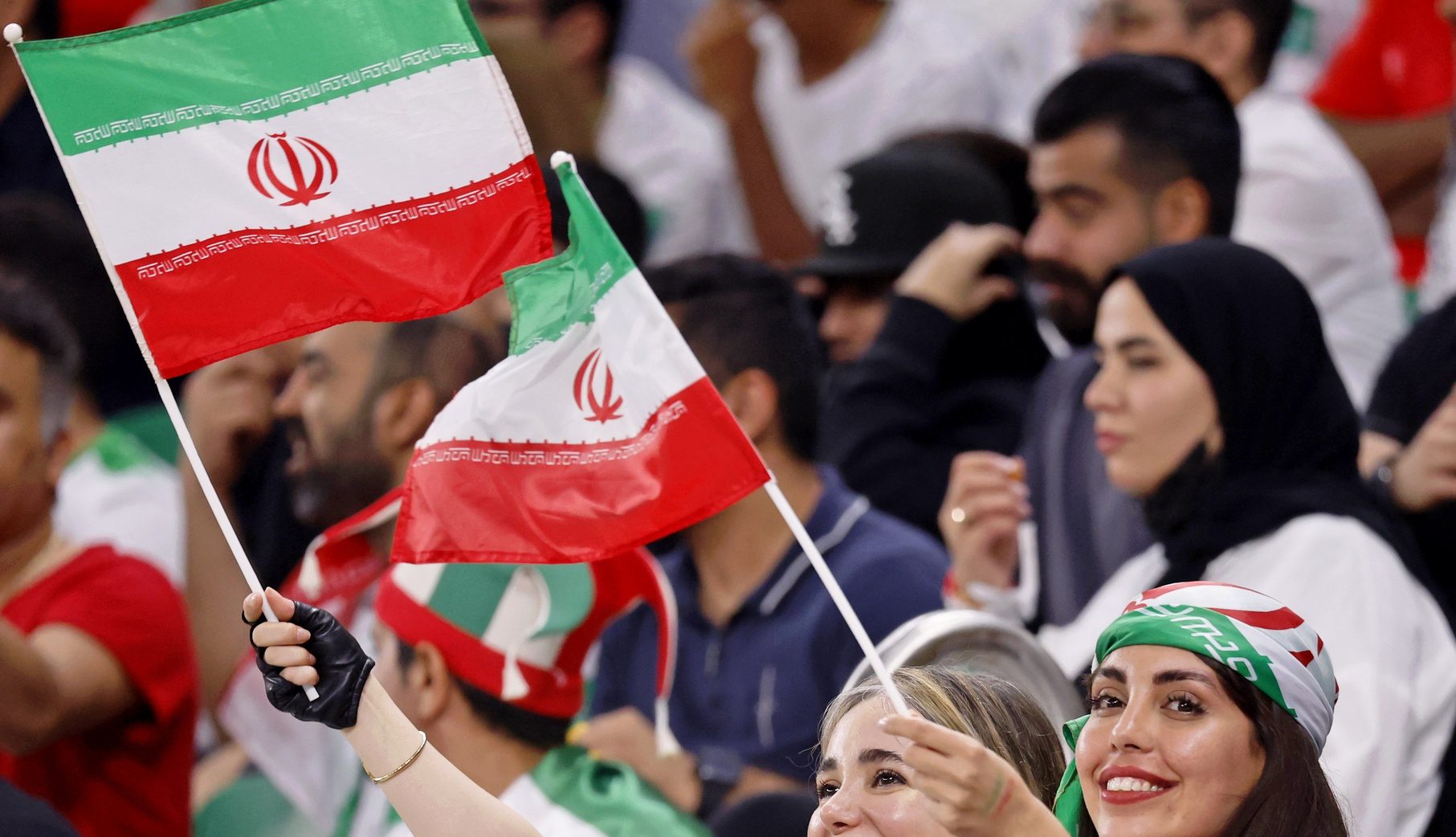Ownership is the only thing NFL fans have zero control over.
We can vote with our voices and dollars on players, coaches, even executives. But in the end, we’re all captives of our favorite NFL team’s owner—and if they want to move the team, sell the team or run it into the ground, too bad. It’s their plaything.
So which fanbases are blessed with the most likeable owners, and which have been most grievously cursed?
We didn’t want to simply say “everyone hates Jerry Jones, let’s put him last. There’s empirical data to consider. There’s history to consider as well.
First, every NFL owner was ranked by number of seasons owned (including family predecessors, if inherited). Then they were ranked by regular-season win percentage, percentage of seasons that ended in a playoff berth, and percentage of seasons that ended in a league championship (including AFL playoffs and titles, as appropriate).
Then I ranked them by net worth, as well as calculated franchise growth rate (2015 franchise value minus purchase price, divided by seasons owned), and an “investment factor” (non-NFL wealth times growth rate). Though independent wealth and financial success don’t have a one-to-one relationship with fan happiness, owners who can afford to invest in their teams are better than those reliant on teams to make them wealthy—and invested-in teams result in better fan experiences.
These numbers are primarily sourced from Forbes’ financial valuations, and Forbes’ billionaire profiles. Some numbers were harder to source, and some are tricky to define thanks to quirky ownership structures or family collectives. These have been noted.
With ordinal ranks in three on-field categories and three financial categories, I added a completely subjective “gut check”: Simply, my ordinal ranking of which owners I deemed most awesome (for a variety of reasons). The average of all seven rankings is our Likeability Index; the owners have been presented is in worst-to-best LI order.
And now, the definitive list:
http://gty.im/486035060
32. Daniel Snyder, Washington
- Seasons owned: 17 (23rd)
- Win percentage: 0.421 (29th)
- Playoff rate: 23.5% (23rd)
- Championship rate: 0.0% (17th)
- Net worth ($bn): 2.1 (18th)
- Franchise growth: 25th
- Investment Factor: 21st
- Gut check: 32nd
Dan Snyder is the antithesis of everything you want in an NFL owner—to a ridiculous, cartoonish, mustache-twirling extent. He extravagantly gouges his team’s massive fanbase, then serves them expired World Cup beer and peanuts from bankrupt airlines. He’s spent big money in pursuit of a winner, but his almost-two-decade-tenure has been a string of nearly unbroken futility. There’s been speculation he’s pulled strings to influence local media coverage. Despite owning a stadium in just its second decade of existence, he’s already making noise about going back into public pockets to build another one. Reportedly, it’s his meddling that undermined the career of the player who could have salvaged everything.
On-field failures, relatively unimpressive off-field value growth and his own lack of business prowess put Synder near the bottom of this list even before we figured in his long, embarrassing history of stridently defending his team’s racial-slur nickname.
http://gty.im/452728632
31. Jimmy Haslam, Cleveland Browns
- Seasons owned: 4 (31st)
- Win percentage: 0.31 (31st)
- Playoff rate: 0.0% (29th)
- Championship rate: 0.0% (17th)
- Net worth ($bn): 2.9 (14th)
- Franchise growth: 30th
- Investment factor: 16th
- Gut check: 30th
The honeymoon period of the Haslam Era came to an explosive, embarrassing end. Just months after he took control of the team, the FBI raided the offices of Haslam’s commercial fuel empire, Pilot Flying J, as part of a massive federal fraud investigation that went all the way up to Haslam himself. Despite owning the Browns for just a few seasons since, he’s already on his third general manager and third head coach (and both of them are already on thin ice).
Haslam’s other greatest hits include current GM Ray Farmer getting suspended for texting from the owner’s box, and drafting notorious party boy Johnny Manziel on the say-so of a homeless man Haslam happened to walk past.
http://gty.im/489319298
30. Zygmunt Wilf, Minnesota Vikings
- Seasons owned: 11 (27th)
- Win percentage: 0.491 (18th)
- Playoff rate: 27.3% (21st)
- Championship rate: 0.0% (17th)
- Net worth ($bn): 1.3 (24th)
- Franchise growth: 27th
- Investment Factor: 20th
- Gut check: 26th
Even by NFL owner standards, Zygmunt “Zygi” Wilf is an inscrutable cipher. The league has become a billionaire’s club, with franchise ownership the crown jewel of a high-rolling asset portfolio. Yet the Wilf family is bizarrely sensitive about their wealth, going as far as getting a court order to seal it. Then again, that was in the process of defending themselves against multiple lawsuits alleging shady real-estate dealings, so…
More than that, the Wilfs have struggled to express exactly who controls power in the organization (See: the “Triangle of Authority”), and their all-over-the-place messaging during Adrian Peterson’s child-abuse scandal caused a very public, very embarrassing falling-out with the most iconic Viking since Eric the Red.
Despite all this, the Wilfs’ likeability index will improve in coming years. They have a stunning, revenue-pumping new stadium almost complete, a contending team to put in it and a coach/quarterback combo who’ll keep them in the hunt for the next decade. But this list is being compiled today—and up until a couple of months ago, there wasn’t a whole lot to like about the Wilfs’ run as owners of the Vikings.
http://gty.im/180089564
29. Stan Kroenke, St. Louis Rams
- Seasons owned: 6 (29th)
- Win percentage: 0.372 (30th)
- Playoff rate: 0.0% (29th)
- Championship rate: 0.0% (17th)
- Net worth ($bn): 10.6 (3rd)
- Franchise growth: 26th
- Investment Factor: 6th
- Gut check: 30th
It takes a cold-blooded dude to buy his hometown NFL team, then go to every possible length to move the team to Los Angeles. Yet “Silent Stan” is doing exactly that—and though the well-moneyed real-estate mogul (and his even-weller-moneyed wife) can make the Rams a winner wherever they play, he’s forcing the people of St. Louis to put together a sweetheart stadium bid while they’re still paying off the one that moved them there from LA to begin with.
Even if Kroenke weren’t an aloof kajilionaire playing profit-driven fantasy football with real sports teams (he’s shuffled the deeds to his NBA, NHL, MLS, MLL, and EPL franchises around his family to avoid NFL cross-market ownership policies), the Rams have seen little value growth and even less on-field success under his at-arm’s-length control.
http://gty.im/491356880
28. Shahid Khan, Jacksonville Jaguars
- Seasons owned: 5 (30th)
- Win percentage: 0.240 (32nd)
- Playoff rate: 0.0% (29th)
- Championship rate: 0.0% (17th)
- Net worth ($bn): 6 (6th)
- Franchise growth: 24th
- Investment Factor: 11th
Khan makes a fantastic first impression: A young, self-made billionaire with a big, honest smile and an awesome mustache. His son Tony is an analytics obsessive/impresario, owner of the TruMedia sports data service. On the surface, the Khans are the ideal model of the next generation of NFL ownership.
Back when the Jags were the butt of jokes, and presumed to have one foot in whatever market the NFL wanted to invade next, Khan’s purchase kept them in Jacksonville, and a cultural identity has coalesced around their underdog narrative (“Duuuuvaaaallll!”).
Yet, Khan’s got strong ties to St. Louis (his home area) and London (he also owns the EPL’s Fulham FC), and his pipe-dream proposal to renovate the languishing Shipyards district is, well, languishing.
Oh, and the Jaguars are still the butt of jokes.
http://gty.im/499100416
27. Bob McNair, Houston Texans
- Seasons owned: 17 (22nd)
- Win percentage: 0.427 (27th)
- Playoff rate: 11.8% (26th)
- Championship rate: 0.0% (17th)
- Net worth ($bn): 3.3 (12th)
- Franchise growth: 23rd
- Investment Factor: 17th
McNair was a perfect fit: A Houston-loyal oil tycoon to replace the dear, departed Oilers. He helped craft a great brand identity and a beautiful, state-of-the-art stadium. After some high-profile early misses in coaching and personnel, for a few years he even got a consistent winner on the field.
His public statements are measured, thoughtful and relatively frequent. He’s been willing to pony up to keep players around and invest in free agents. In many ways, McNair is the model down-the-middle NFL owner.
But in terms of value, the Texans aren’t old enough to have grown massively in the last decade or so, as much of the rest of the league has, and the glorious Kubiak/Schaub Era wasn’t very long and didn’t end so gloriously. Though the career of J.J. Watt may not yet be as wasted as Andre Johnson’s was, McNair won’t climb these rankings until the Texans are consistently eating the Cowboys’ lunch.
http://gty.im/490561274
26. Stephen Ross, Miami Dolphins
- Seasons owned: 8 (28th)
- Win percentage: 0.475 (23rd)
- Playoff rate: 12.5% (25th)
- Championship rate: 0.0% (17th)
- Net worth ($bn): 7 (5th)
- Franchise growth: 31st
- Investment Factor: 13th
- Gut check: 8th
Ross is likeable in many ways: He’s a self-made multi-billionaire, gives back to his alma mater and hasn’t hesitated to spend money on the Dolphins. But a lot of his early efforts seemed tone-deaf, beside the point, aimed more at creating a culture of excitement rather than success—like inviting seemingly-random celebrities (Venus Williams, Serena Williams, Jennifer Lopez, Marc Anthony, Gloria Estefan and Jimmy Buffett) to buy small stakes in the team.
His high-profile swing-and-miss recruitment of fellow Michigan Man Jim Harbaugh didn’t help matters. Ross is on a bit of a roll lately, with the record-breaking signing of All-Pro Ndamukong Suh and desperately needed renovations to Sun Life stadium finally in progress—but with the coaching staff in flux and the team still an on-field disappointment, Ross has a lot of work left to do.
CLICK HERE TO CONTINUE READING >>>







